The Future of Oral Care: Innovations Shaping Dental Health in the Next Decade
As we look toward the future, the realm of Oral Care is poised for a transformative shift, driven by groundbreaking innovations that promise to enhance dental health over the next decade. According to a recent report by the Global Oral Care Market, the industry is expected to reach a valuation of $60 billion by 2030, reflecting a compound annual growth rate of approximately 6.5%. This growth is fueled by advancements in technology such as AI-driven diagnostics, smart toothbrushes, and personalized oral hygiene products that cater to individual needs. Furthermore, the integration of tele-dentistry is set to revolutionize how patients interact with dental care professionals, making oral health management more accessible than ever. As these innovations emerge, understanding their benefits will be crucial for consumers and healthcare providers alike, ensuring that we can make informed decisions about our oral health in an ever-evolving landscape.

Challenges in Current Oral Care Solutions and Their Impact on Dental Health
Current oral care solutions face numerous challenges that significantly impact dental health. One major issue is accessibility; many individuals lack access to basic dental care due to geographic, economic, or systemic barriers. This results in untreated dental problems, which can lead to severe health complications, such as infections or even chronic diseases linked to poor oral hygiene. Additionally, there is often a lack of education regarding proper oral health practices, perpetuating a cycle of neglect and misunderstanding about the importance of regular dental check-ups and hygiene.
Moreover, traditional oral care products often contain ingredients that can be harsh or ineffective for certain populations, such as those with sensitive teeth or allergies. There’s a growing demand for personalized oral care solutions that cater to diverse needs and preferences. Innovations in biocompatible materials and natural ingredients are starting to emerge, aiming to address these challenges directly. As the industry evolves, the focus must shift towards developing products and services that are not only effective but also inclusive, ensuring everyone has the opportunity to achieve and maintain optimal dental health.
Emerging Technologies in Oral Care: Addressing Existing Problems
The landscape of oral care is on the brink of a significant transformation, driven by emerging technologies that aim to tackle longstanding challenges in dental health. According to a report by the World Health Organization, nearly 3.5 billion people worldwide suffer from oral diseases, underscoring a critical need for innovative solutions. Advanced diagnostic tools, such as AI-powered imaging systems, are revolutionizing early detection of dental issues. These systems can analyze radiographs with greater accuracy than traditional methods, leading to more timely interventions and improved patient outcomes.
Additionally, the incorporation of tele-dentistry is making dental care more accessible. A study published in the Journal of the American Dental Association highlighted that tele-dentistry could increase access to care for underserved populations by up to 30%. Remote consultations not only save time but also help dentists maintain a consistent dialogue with patients, fostering better preventive care practices. Furthermore, innovations like smart toothbrushes that provide real-time feedback on brushing habits show promise in reducing dental plaque levels effectively. As these technologies continue to evolve, they represent a crucial step towards addressing the systemic issues plaguing oral health, paving the way for a healthier future.
The Future of Oral Care: Innovations Shaping Dental Health in the Next Decade
| Dimension | Technology | Application | Impact on Dental Health | Estimated Adoption by 2030 |
|---|---|---|---|---|
| Teledentistry | Virtual Consultations | Remote Diagnosis | Enhanced Access to Care | 75% |
| AI in Diagnostics | Machine Learning Algorithms | Disease Detection | Improved Accuracy | 60% |
| Smart Toothbrushes | Bluetooth Connectivity | Real-time Feedback | Enhanced Brushing Technique | 50% |
| 3D Printing | Custom Dental Implants | On-demand Manufacturing | Reduced Dental Lab Time | 65% |
| Nanotechnology | Antimicrobial Agents | Preventative Treatments | Lower Risk of Cavities | 55% |
The Role of AI and Big Data in Personalized Dental Care
The future of oral care is being significantly influenced by advancements in AI and big data, reshaping personalized dental health strategies. As the global dental care market is projected to grow from $568 billion in 2023 to a CAGR exceeding $7% from 2024 to 2032, it is clear that oral health awareness is on the rise. This growing awareness is leading consumers to prioritize their oral hygiene, creating a demand for tailored dental care solutions.
AI technologies are revolutionizing the way dental professionals diagnose and treat patients. With the ability to analyze vast datasets, AI can identify patterns and predict dental issues before they become significant problems. Furthermore, big data allows for personalized treatment plans, taking into account individual patient histories and preferences. This level of customization not only enhances patient care but also boosts engagement in maintaining oral health.
As these technologies develop, we can expect a more proactive approach to dental health management, where patients are closely monitored, and interventions are timely and effective. The integration of AI and big data into oral care is set to redefine traditional dental practices and contribute to overall health and well-being in the coming decade.
Consumer Awareness: Bridging the Gap Between Innovations and Usage
Consumer awareness plays a pivotal role in the adoption of new dental technologies and practices. According to the Global Oral Care Market report from 2022, nearly 60% of consumers are unaware of the latest innovations in oral health, such as AI-assisted toothbrushes and smart dental apps. This gap in knowledge not only hinders individuals from achieving optimal dental hygiene but also stunts the growth of transformative products designed to enhance oral health. As companies introduce advanced solutions, educating the public becomes critical to bridge this divide.

Furthermore, the American Dental Association indicates that over 70% of patients prefer dental products that are easy to understand and apply. This finding highlights the necessity for manufacturers to simplify their messaging and promote greater accessibility of their innovations. Data from a 2023 survey reveals that personalized oral health solutions could boost consumer engagement by as much as 35%, provided that consumers are informed about their benefits. Consequently, fostering a well-informed consumer base is essential for advancing dental health trends and ensuring that innovative products reach their full potential in promoting oral hygiene.
Sustainability in Oral Care Products: Overcoming Environmental Concerns
The oral care industry is rapidly evolving, with sustainability taking center stage as consumers become increasingly aware of environmental concerns. Many traditional dental products contribute significantly to plastic waste, leading to a pressing need for eco-friendly alternatives. Brands are now prioritizing renewable materials and recyclable packaging in their product lines, paving the way for a greener approach to dental health.
When considering sustainable oral care products, look for toothbrushes made from bamboo or recycled materials. These options not only reduce plastic consumption but also offer effective cleaning capabilities. Additionally, consider toothpaste tablets or powders packaged in biodegradable containers, which minimize packaging waste while maintaining dental hygiene standards.

Related Posts
-
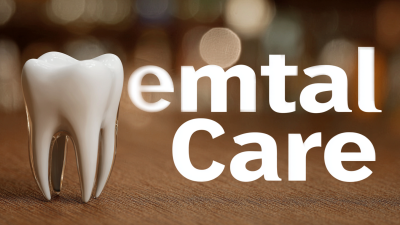
Understanding the Essentials of Best Dental Care Practices
-
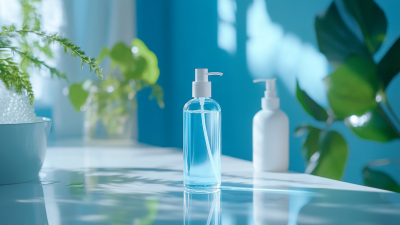
5 Must-Try Whitening Mouthwash Innovations for Global Buyers in 2023
-
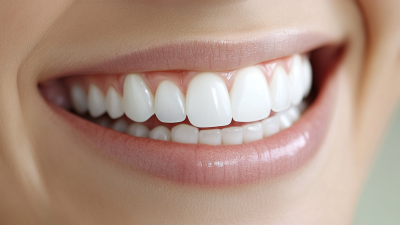
The Future of Dental Items Market in 2025 and Essential Strategies for Global Buyers
-
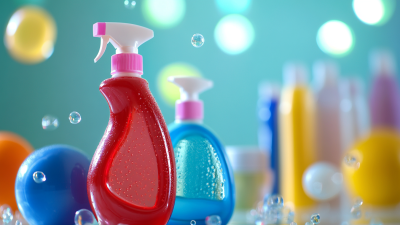
Essential Tips for Sourcing the Best Dentist Cleaning Products Worldwide
-
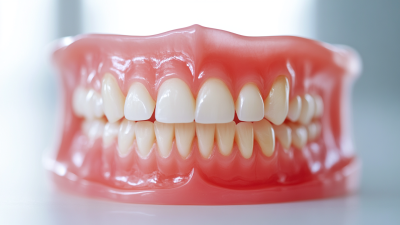
Elevating Global Standards in Dental Care Through China's Unmatched Manufacturing Quality
-
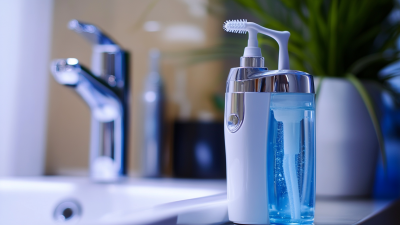
Unlocking the Power of Best Oral Irrigator Detailed Specifications and Usage Guide for Buyers
